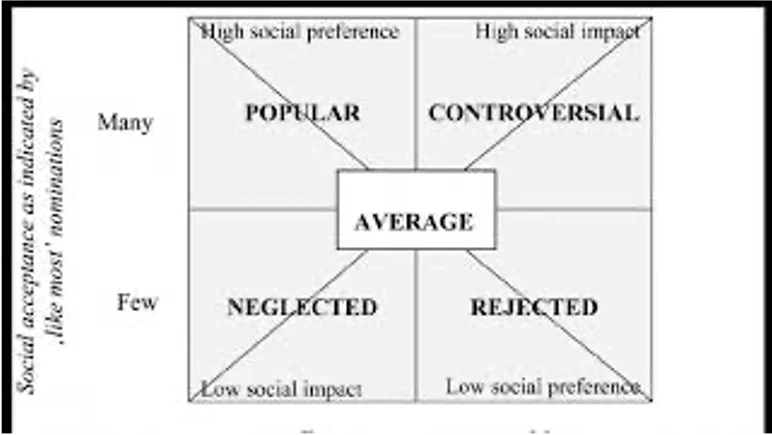As parents, we all want our children to be happy and well-liked. Making friends is an important part of a child’s development, but it’s not always easy. Many parents worry about their child’s social life and feel like they can’t do anything to help. However, this is far from the truth. Parents play a crucial role in supporting their child’s social competency and peer acceptance. Let’s explore how parents can help their children develop the necessary skills to be socially successful.
Psychologists often use a tool called sociometric measures to understand social relationships in groups of children. This measures whether children are: popular, rejected, neglected, controversial, or average in their social status. As a parent, you can use the same principles to gauge how your child is perceived by their peers. Start by observing your child’s behavior when they’re around other children. Are they outgoing or shy? Do they struggle to make friends or do they seem to fit in effortlessly? Knowing where your child falls on the sociometric scale can help you identify areas where they may need support.
Here’s a brief summary of each category. Psychologists typically ask children to vote on their peers and collect nominations on the kids that are well-liked (positive nominations) or least-liked (negative nominations).

- Popular Kids: These are children who are well-liked by their peers and are frequently nominated as playmates or friends. Popular children tend to have high levels of social skills, are confident, and display positive behaviors.
- Rejected Kids: These are children who are disliked by their peers and are frequently nominated as targets of aggression, teasing, or exclusion. Rejected children tend to have low levels of social skills, may display negative behaviors, or may have physical or behavioral characteristics that set them apart from their peers.
- Average Kids: These are children who receive an average number of positive and negative nominations. These children are not particularly popular or unpopular and tend to have average social skills.
- Controversial Kids: These are children who receive both positive and negative nominations from their peers. These children may have a reputation for being both liked and disliked, and their social status may fluctuate over time.
- Neglected Kids: These are children who are neither liked nor disliked by their peers and receive few nominations overall. Neglected children tend to be socially withdrawn, shy, or have difficulty initiating social interactions.
Parents can help their child with emotional coaching. This is a key strategy for supporting your child’s social development. Emotional coaching is a process where parents help their children identify, understand and regulate their emotions when things don’t go their way. They can also help them “read” the room to understand if someone wants to be left alone, or if they want to engage in play. By helping your child improve their emotional intelligence, you can give them a competitive edge when it comes to social situations. Also, practice empathy with your child by acknowledging their emotions and validating their feelings. Provide them with ways to empathize with those around them. Talk to them about how their friend may be feeling if they didn’t get a good grade on a test or if they didn’t get invited to a close friend’s birthday party. This will also help them develop empathy for others. Encourage them to express themselves in a healthy way and help them find productive outlets for negative emotions.
Parents can help their child develop pro-social skills. Research has found that rejected children often display anti-social or aggressive behavior with their peers. On the other hand, pro-social skills are behaviors that promote positive relationships with peers. These skills include sharing, cooperation, and communication. It’s important to teach your child these skills early on and reinforce them regularly.
Parents play an important role as social arrangers. Parents can provide them with lots of opportunities to develop their pro-social skills by scheduling play dates and putting them in activities with peers that are the same age as them. Look for activities that encourage cooperation and interaction, like board games or sports. After the playdate or social gathering, it will be important for you to check in with them after to see if there was any issues or concerns that need to be addressed. This will provide you with another chance to help your child understand the ways they could use pro-social skills and effective conflict resolution skills for next time.
Parents can help their child by using emotional scripts with your child. Emotional scripts are pre-planned responses to certain social situations that help your child navigate social experiences. For example, you might prepare your child with a script before a playdate: “If someone takes a toy you’re playing with, you can say ‘Please give it back, it’s my turn now'”. This can help your child feel more confident and prepared for social interactions. Emotional scripts can also help children tune into what the other person may be feeling. Parents can discuss various hypothetical situations with their child, so they understand what might make someone upset, or not want to play with them. This allows for them to be skilled and equipped to handle diverse situations. When a parent has high emotional intelligence, they ware able to help their children understand the variety of ways an individual may respond to the same situation.
Parents as positive partners. Parents who are socially responsive and warm have children who have better peer competence and peer acceptance. Creating a nurturing and supportive home environment is critical for your child’s social development. When a child feels loved, accepted, and respected at home, they’re more likely to be confident and successful in their social lives. Spend quality time with your child and engage in activities they enjoy. Provide consistent rules and boundaries, but also show them flexibility and understanding. Celebrate their uniqueness and remind them that they’re special just the way they are.
Helping your child with peer acceptance can seem like a daunting task, but it’s never too late to start. By understanding and gauging your child’s social status, emotional coaching, teaching pro-social skills, using emotional scripts, and creating a nurturing home environment, you can give your child the tools they need for success. Every child deserves to be happy and well-liked, and with your support, they can be.

